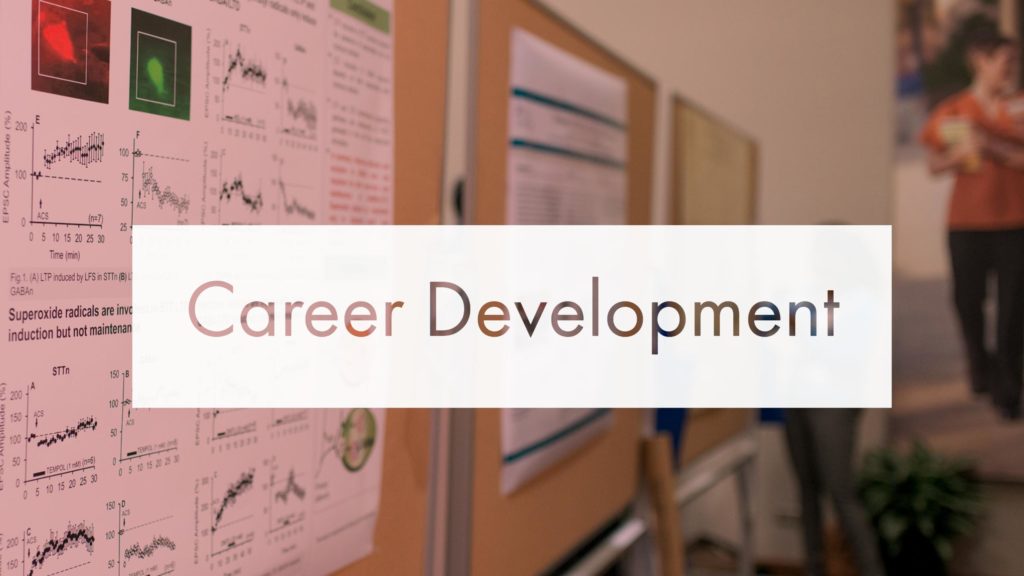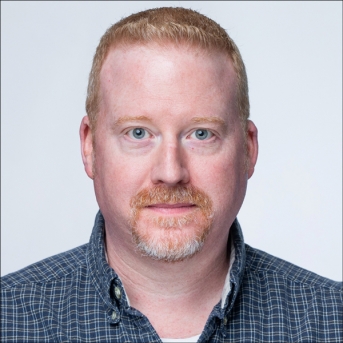GSBS Career Exploration Series: Jay Morris, Ph.D., Medical Science Liaison

 Jay Morris, Ph.D., spoke at the November Career Exploration Series talk about his career as a medical science liaison at Biotheranostics.
Jay Morris, Ph.D., spoke at the November Career Exploration Series talk about his career as a medical science liaison at Biotheranostics.
Dr. Morris has a B.S and M.S. from Texas Tech University and a Ph.D. in Molecular and Environmental Plant Science from Texas A&M University. After his degree, he did postdoctoral training at Medical University of South Carolina (MUSC). While at MUSC, he conducted a lot of preclinical work, but also collaborated with a clinical faculty member. When his clinical collaborator relocated to UT Health San Antonio, Dr. Morris joined him as a research assistant professor to run his lab and manage the Laser Capture Microscopy core. As Dr. Morris’ interests changed, and he found himself gravitating away from professorial and academic duties and he joined Biotheranostics as a medical science liaison in 2019.
Dr. Morris discussed the medical science liaison role having two facets, one internal, one external. Internally, MSLs maintain knowledge of disease(s), produce scientific materials and educate the sales force. Externally, MSLs primarily gather and disseminate scientific information to key opinion leaders, who are the experts in their fields. Additionally, they also present to scientists/physicians, attend conferences and address medical information requests.
Within an MSL role, the MSL can support a pharmaceutical therapy anywhere on the scale from an initial clinical testing phase to an on the market drug. Or an MSL can support a diagnostic test (predicative or prognostic) or targeted therapy identification. Additionally, companies who hire MSLs can vary widely in size. For example, Biotheranostics is a small company with four MSLs and an MSL manager, whereas a company like Eli Lilly has hundreds of MSLs across many therapeutics.
Typically, an MSL has administrative days to do reporting, planning and virtual committee meetings. And then travel days spent attending conferences, multiple or single day trips, including some weekend conferences. Since COVID, all travel has been cancelled, which frees up some extra time as all meetings and conferences are now virtual. In some ways, the virtual environment has made it easier to schedule meetings with key opinion leaders in the evenings or when people have more time and less distractions. Pre-COVID, Dr. Morris estimated that he spent 60-70 percent of his time traveling. Some weeks he would be home three days in two weeks whereas other weeks he would be home the whole week. Travel schedules also vary around the conferences that are most related to your area that your key opinion leader would attend.
Dr. Morris related several areas for developing your skill set for becoming an MSL:
- Scientific Knowledge – this is easy for scientists, something you do every day, everyone can learn this
- Presentation Skills – get as much experience as you can in giving and creating presentations this is a large important component of the MSL position
- Clinical experience can be helpful but is not required
- Collaborations – relationship development is a big part of being an MSL and collaborations can show this
- Organizational Leadership – serving on committees, in student or national orgs shows you can work as a team.
Dr. Morris also highly recommends that you utilize and maintain an active LinkedIn profile.
Regarding soft skills, Dr. Morris recommends developing good organizational & time management habits (you need to keep multiple balls afloat while traveling), using professional email etiquette as this is the primary mode of communication with contact, cultivating excellent presentation skills as you may give the same presentation multiple times a week to different audiences, having emotional intelligence and embracing teamwork with the ability to lead as well as follow.
When you are looking for an MSL position, Dr. Morris recommended reaching out to MSLs online or looking for them at professional meetings – exhibitors often bring sales professionals as well as MSLs to meetings. You can also join online MSL groups or the Medical Science Liaison Society. Additionally, Dr. Morris recommended connecting and networking with recruiters who recruit MSLs, as some companies use them for hiring. Additionally, some companies hire contract MSLs for a yearlong contract, which is a great way to get MSL experience, and some companies also offer internships.
Dr. Morris addressed several questions covering topics such as:
- Job security – generally, it’s pretty good. Companies invest time in recruiting and training MSLs, so they don’t take hiring decisions lightly.
- Obtaining an MSL position without experience – he recommends building relationships with recruiters who recruit for medical affairs positions. Some are able to transition from a PhD program to an MSL, but it may give you greater flexibility to do a short postdoc while looking/transitioning to an MSL position.
- Regarding courses or resources online, Dr. Morris referred back to the MSLS or other MSL groups for a variety of free articles and helpful information. He also recommend a podcast by Tom Caravela as a great resource, particularly a recent two part episode with hiring
- Regarding being a competitive applicant – in general, everyone has publications, so it won’t set you apart from other applicants. It’s your soft skills that are really important, your ability to present and tell a story.
- What’s the difference between Sales and MSL? The sales force has to meet metrics, meet product sales goals. MSLs sell the science and support the sales force with information and data.
- Is it helpful to know a disease state model? It’s helpful in that it will give you a leg up on others who may not. When you have to prepare your presentation, you will be more familiar with the disease state, targeted therapies, and genes, and then you can focus more on the specifics of the role of the drug or products that the specific company is marketing. It may save you some time reading background materials. BUT it doesn’t mean that you can’t learn it or enter from a different space. And once you are hired, you will be trained.
And once you get an MSL position and have some experience, it’s much easier to move around. There are many lateral positions as well as upward movement positions that become available. If you are interested, connect with Dr. Jay Morris on LinkedIn.
About The Author
 This article was written by Mary Bradley, MLA, the Director of Career & Professional Development at the Graduate School of Biomedical Sciences.
This article was written by Mary Bradley, MLA, the Director of Career & Professional Development at the Graduate School of Biomedical Sciences.
